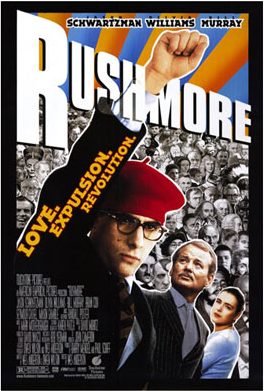
1998 was not the year of women. The fact that even the negative reviews of Wes Anderson’s Rushmore don’t mention how much of a creep the protagonist is is evidence of this.
Like, have you seen Rushmore lately? Like, any time since, say, 2017 (the year the #metoo movement became widely known seems to indicate the time when American media shifted to considering the radical possibility that women are full-fledged people, complete with all the complexities and complexes that makes someone “normal” )?
My girlfriend and I recently revisited this film. Both in our 30s, we recalled enjoying the film in the past, and settled in for what we thought would be the kind of idiosyncratic, colorful experience which Wes Anderson is known for.
It turns out, the premise of the film is, presumably, a nightmare for many women and a questionable playbook for men.
A woman, in her first year of being a widow, is stalked by a high school kid and his adult friend. That is, more or less, the plot of the film. The men lie, the men modulate their behaviors to try to win her. No one really is held accountable for their behavior.
I don’t think it is such a radical idea that people should not stalk one another. I don’t think it is such a radical idea to be true to yourself rather than to shape your identity to impress those around you. I don’t think it is such a radical idea that people be held accountable for their pathological actions, particularly when they involve harming others.
All that I’m really trying to say here is that the kid in Rushmore is a creep.
First installment of Nine Months of Non-Fiction.
